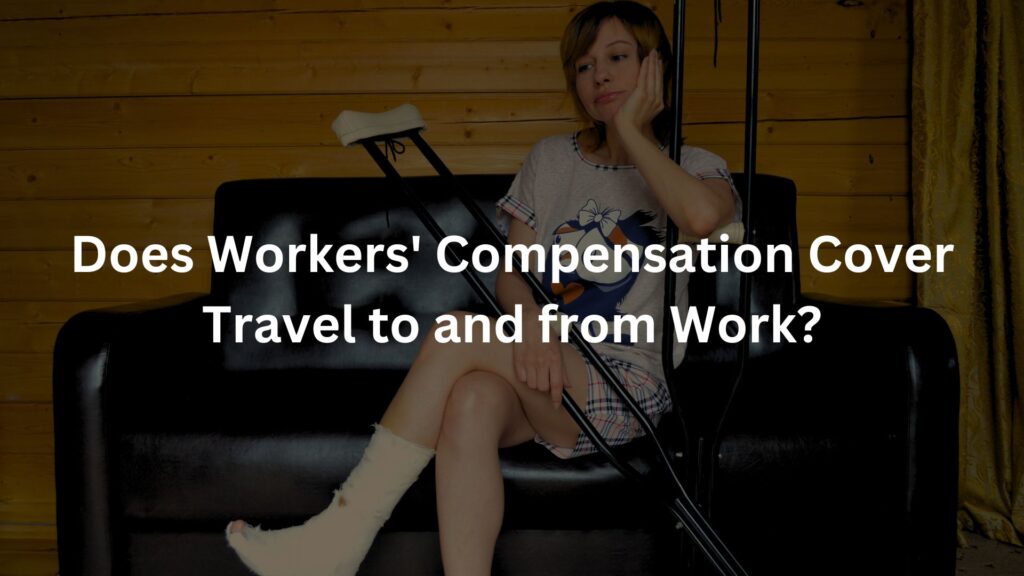Workers’ compensation in Colorado provides benefits for people who suffer injuries on the job and work-related illnesses. If you suffer injuries in an accident while driving on the job, you may be covered by workers’ compensation. For example, it will cover expenses if you travel as part of your job duties, such as a semi-truck operator or a delivery person. Among the rules governing the Colorado workers’ compensation system is the coming and going rule which limits coverage for most worker injuries sustained while driving or traveling to and from work. Let’s discuss this rule and what alternative claims you may have under Colorado law to recover compensation for your injuries and damages.

Workers’ compensation is generally the exclusive remedy for workers injured or developing a work-related illness while on the job. The key to unlocking workers’ comp benefits is whether you were “on the job” and where that line is drawn. When you are on a job site or your work location performing work, it is easy to determine whether you are within workers’ comp coverage. When you travel related to work, the question can be more complex. You may travel between job sites on the clock. Your work may involve significant time driving or otherwise traveling outside of a fixed worksite. Your work may require you to drive to one work location at the start of your shift and travel to another job site to perform your primary job duties. Most workers travel from home to work and back on a daily basis while off the clock. Like other personal injury claims involving your employer, the facts in your case can determine who may be at fault for your injuries and who may be liable for your acts.
Commute vs. job
The coming and going rule in Colorado workers’ compensation divides work comp coverage between work-related travel and typical commute to and from work. Workers’ compensation generally covers injuries incurred while traveling as part of your job duties. Many professions require workers to travel as part of their essential job duties. These include outside salespeople, police officers and other first responders, delivery drivers, truck drivers, on-call employees, home service professionals and nurses. If you sustain injuries in a car accident while traveling as part of your work, you may receive workers’ compensation benefits. Your benefits may include losses related to travel, such as lodging and gas stipends. Colorado workers’ compensation also pays benefits for related medical expenses and two-thirds of your average weekly wage.
Generally, this rule excludes coverage for injuries caused by an accident while commuting to or from work. An employer’s obligation to cover workers’ compensation benefits extends to work time and duties performed on behalf of the company. Commuting is typically not part of the employer’s obligation unless the employer pays you for commute time. Employers generally are also not required to cover benefits for accidents incurred traveling to and from a restaurant for lunch or if you run personal errands even while on the clock.
Workers’ compensation and work trips
Some employees travel for overnight or longer trips as part of their job. If your employer pays for your transportation for work reasons, an injury sustained while on that work trip may be covered by workers’ compensation in Colorado. You may be eligible for benefits even if you sustain injuries on a work trip during a recreational activity related to the work trip. Work comp claims involving work travel often rely upon the specific facts and circumstances involved. You should discuss any potential travel-related workers’ comp claim with an experienced workers’ compensation lawyer in Denver.
Assessing your work comp claim
Workers’ compensation insurance coverage applies when the injury occurs within the course of employment. In many circumstances involving travel it can be unclear whether the accident occurred within the course of your employment. For example, if you go to work to pick up a paycheck and suffer a slip and fall injury, some courts may rule that your injuries are within workers’ compensation. The best thing you can do is talk to an experienced work comp attorney about your situation. Your attorney can evaluate your situation, determine the potential avenues to recover compensation and advocate for you in any insurance negotiations. If you filed a claim and your employer’s work comp insurance carrier denied it because you were traveling, you should consult with a lawyer immediately.
It is easy to get lost in the workers’ compensation system with your employer and its insurance company fighting against your claim. They have financial incentives to avoid paying on your claim so they will apply rules in the most restrictive manner possible. Just because they do not want to pay on your claim does not mean you do not have a legal right to benefits.
What if I was injured in an accident and my employer denies I was on the job?
This happens all too often in work comp claims involving traveling employees. An experienced injury attorney will consider all possible options and pursue the path that will give you the opportunity to receive full and fair compensation. In some cases, the employer and its insurer wrongfully denies your claim and you have a valid workers’ compensation claim for benefits under Colorado law. Your work comp attorney can advocate for your claim with the insurance company, the Department of Workers’ Compensation and even in court if necessary.
If your employer denies the workers’ comp claim and you do not have a valid workers’ compensation claim under Colorado law, you may have other sources to recover for your injuries and damages. If you were injured due to somebody else’s negligence, you can pursue negligent parties and their insurance companies. You may be able to pursue claims under your own insurance policies, such as medical payments coverage or uninsured motorist coverage. Additionally, your employer may be liable for your injuries under personal injury laws even if the accident is not within the scope of workers’ compensation. You deserve to talk to a knowledgeable attorney about your situation and understand your rights before making any decisions about your next steps.
Colorado Workers’ Compensation Attorneys
If you sustained a workplace injury or illness, Colorado law gives you the right to file a work comp claim to obtain medical care and recover lost wages. Our experienced Colorado workers’ compensation lawyers help clients pursue claims for workplace accidents, repetitive use injuries and work-related illnesses. At Front Range Injury Attorneys we advocate for clients across Colorado and across a wide range of industries and occupations.
Contact our law firm for a free consultation to discuss your claim. You can speak with our attorneys at no cost and no obligation to understand your legal rights.
Read More
Learn more about your legal rights to workers’ compensation benefits under Colorado law:










